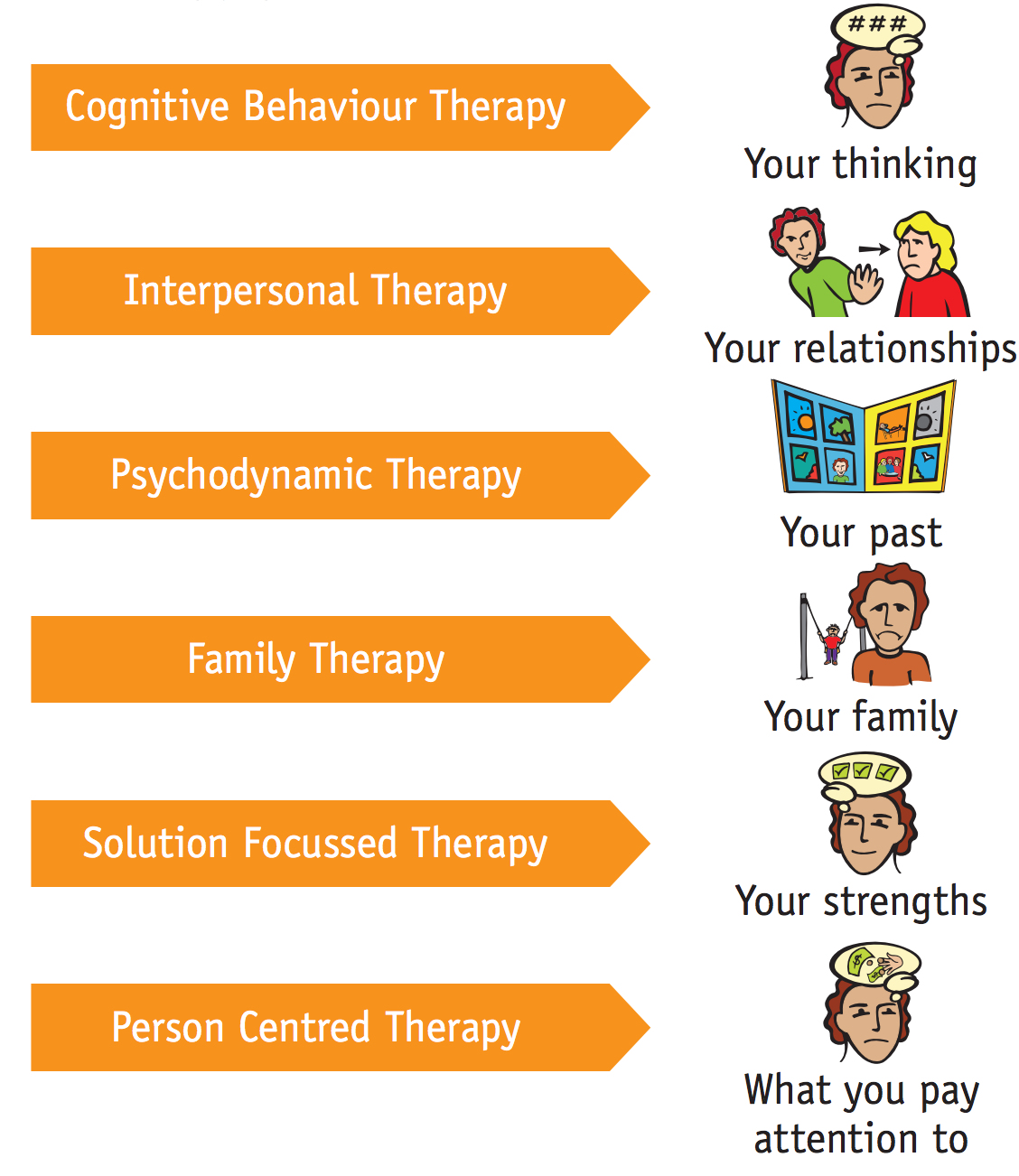Checking out the Benefits of Virtual Therapy in Modern Mental Healthcare
The increase of virtual therapy notes a substantial change in mental healthcare. It offers enhanced accessibility, enabling people from varied histories to look for aid without geographical constraints. Versatility in organizing accommodates differing way of lives, while the comfort of home can promote visibility. Nonetheless, the ramifications of these modifications extend past plain ease. The advancing landscape of therapy elevates crucial concerns about its lasting impacts on patient involvement and treatment outcomes.
Improved Access for All
Although conventional therapy usually provides obstacles such as geographical area and organizing problems, virtual therapy significantly enhances availability for people seeking psychological health assistance. By getting rid of the requirement for physical traveling, virtual therapy enables clients from remote locations or those with flexibility obstacles to link with qualified professionals. This mode of therapy can get to underserved populaces who might lack local psychological health sources, consequently dealing with variations in accessibility to care. In addition, virtual platforms can deal with varied requirements, providing solutions in numerous languages and accommodating different social backgrounds. Clients can involve with a more comprehensive series of specialists, supplying them with options that straighten with their specific needs and preferences. This boosted availability fosters a much more comprehensive atmosphere, permitting people to seek assistance without the stigma frequently related to in-person brows through. Generally, virtual therapy represents a considerable improvement in making mental healthcare extra accessible to all.
Adaptability in Scheduling Sessions

As virtual therapy remains to acquire traction, its inherent flexibility in scheduling sessions verifies to be a significant advantage for lots of individuals. Unlike traditional in-person therapy, virtual therapy allows clients to select session times that best fit their individual and expert dedications. This adaptability fits those with demanding job schedules, family commitments, or various other commitments that can make attending physical appointments challenging.
Furthermore, clients can quickly reschedule or adjust their sessions as needed, decreasing the tension connected with rigid consultation systems. The accessibility of numerous time slots throughout the week, including nights and weekends, further enhances accessibility. This flexibility not only urges consistency in attendance however also promotes a better commitment to the restorative procedure. Eventually, the flexibility in scheduling sessions stands for a transformative change in mental healthcare, empowering people to prioritize their health without sacrificing various other aspects of their lives.
Convenience of a Familiar Atmosphere
The convenience of a familiar environment substantially enhances the efficiency of virtual therapy for several customers. Taking part in therapy from the security of their very own homes enables individuals to really feel even more secure, reducing stress and anxiety that may go along with standard in-person sessions. This familiarity can promote open interaction, making it possible for customers to share their ideas and feelings more easily.
Moreover, the visibility of individual products and the ability to control their surroundings can contribute to a sense of protection and leisure. Clients often report that remaining in a comfortable space enables them to concentrate much more on the healing procedure instead than the establishing itself.
In addition, the casual nature of virtual sessions can assist liquify barriers that might exist in a conventional office environment, cultivating a much deeper link with specialists. Overall, the convenience of acquainted surroundings plays an essential duty in enhancing the healing experience and effectiveness for lots of individuals looking for psychological health support.
Broader Series Of Therapeutic Choices
A bigger series of restorative choices appears through virtual therapy, enabling customers to access different modalities that might not be viable in standard settings. This adaptability allows people to discover diverse methods such as cognitive-behavioral therapy, mindfulness methods, art therapy, and even specialized treatments like trauma-informed care or dialectical actions therapy.
Customers can choose from a wider range of therapists, consisting of those that specialize in particular niche locations or certain populaces, boosting the possibility of discovering an ideal suit. Virtual platforms commonly provide accessibility to team therapy sessions, assistance communities, and workshops that may be geographically inaccessible otherwise.
This range equips clients to participate in their healing procedure according to their unique preferences and requirements, potentially increasing inspiration and dedication to therapy. Consequently, the landscape of psychological healthcare comes to be extra comprehensive and adaptable, dealing with a bigger variety of specific experiences and difficulties.
Reduced Preconception Bordering Therapy
Accessing therapy through virtual systems adds to a substantial reduction in the preconception generally linked with psychological health and wellness treatment. By supplying a very discreet and private environment, virtual therapy permits people to look for assistance without the concern of being evaluated or identified. This anonymity interest those that might otherwise wait to go after in-person therapy because of societal understandings bordering psychological health and wellness.
In addition, as the frequency of virtual therapy increases, it stabilizes the discussion around psychological wellness, making it a much more appropriate component of day-to-day life. People commonly feel much more comfortable reviewing their experiences online, advertising visibility and minimizing sensations of seclusion. The ease of access of these services also urges a wider market to engage with psychological health sources, fostering a culture of support as opposed to embarassment. Eventually, the rise of virtual therapy plays a crucial duty in improving perspectives towards looking for aid, adding to a more approving society relating to mental wellness challenges.
Cost-Effectiveness and Cost

Minimized Session Costs
Numerous individuals looking for mental health support discover that virtual therapy greatly lowers session expenses contrasted to typical in-person choices. The elimination of traveling costs and time off work usually adds to overall financial savings. Furthermore, several virtual therapists supply competitive prices because of reduced overhanging expenses linked with maintaining a physical office. This change in expense allows customers to accessibility quality mental wellness services without the financial strain that might include traditional therapy. For numerous, this affordability enables more constant sessions, which can improve therapy end results. Consequently, virtual therapy not just democratizes accessibility to psychological health and wellness treatment however additionally supplies a sustainable financial model that straightens with customers' budgets, making mental health and wellness assistance a lot more achievable for a larger audience.
Expanded Gain Access To Choices
While conventional therapy often presents logistical barriers, virtual therapy considerably expands access options for people looking for psychological wellness treatment. By eliminating the need for travel and permitting flexible scheduling, virtual therapy fits diverse lifestyles and commitments. This ease of access is specifically beneficial for those in remote areas or with movement challenges. Furthermore, the cost-effectiveness of virtual therapy lowers financial strain, making mental health services a lot more reachable. Several platforms use tiered prices or sliding range charges, promoting price. Insurance companies increasingly recognize virtual therapy, further enhancing its financial accessibility. On the whole, virtual therapy not only broadens the extent of who can get more info treatment yet additionally addresses economic obstacles, making mental health assistance more inclusive and achievable for all.
Enhanced Connection of Treatment
Enhanced continuity of care becomes a substantial benefit of virtual therapy in modern mental healthcare. This approach enables patients to preserve consistent communication with their specialists, no matter of geographical barriers or scheduling problems. adhd counselling. The versatility of virtual sessions cultivates regular check-ins, which are vital for monitoring development and adjusting therapy plans as needed
In addition, electronic wellness documents and telehealth platforms help with smooth information sharing amongst treatment providers. This interconnectedness assures that all specialists associated with a client's care are upgraded on therapy developments, leading to even more coordinated and efficient treatments.
Clients typically experience minimized anxiousness and boosted involvement because of the comfort of accessing therapy from familiar settings. Such access boosts adherence to treatment regimens, ultimately improving outcomes - couples counselling. To sum up, virtual therapy not just bridges voids in mental wellness services but also fortifies the connection of care, a vital element of successful therapeutic relationships
Frequently Asked Questions
Just How Does Virtual Therapy Make Sure Privacy and Privacy for Clients?
The existing inquiry addresses the procedures virtual therapy utilizes to shield customer privacy. Making use of encrypted platforms, safe and secure logins, and compliance with laws like HIPAA, virtual therapy assurances that delicate information continues to be personal and hard to reach to unapproved individuals.
Can I Switch Therapists Quickly in Virtual Therapy?
Switching therapists in virtual therapy is usually straightforward. Customers can connect their desire for a change with the system, permitting versatility in locating a far better match without the logistical difficulties of in-person visits.
What Technology Do I Required for Virtual Therapy Sessions?
To get involved in virtual therapy sessions, a private usually requires a trustworthy net connection, a computer or mobile phone with an electronic camera and microphone, and access to a protected video conferencing system defined by their therapist.

Are Virtual Therapy Sessions as Effective as In-Person Sessions?
Recent studies suggest that virtual therapy sessions can be just as effective as in-person sessions, depending on the person's preferences and situations. Elements such as convenience and access might enhance the overall healing experience for some clients.
What Should I Do if I Experience Technical Issues Throughout a Session?
If technological concerns occur throughout a session, one should smoothly communicate the problem to the therapist, effort to reconnect, or button to a backup approach. Perseverance and versatility are vital in managing these disturbances.